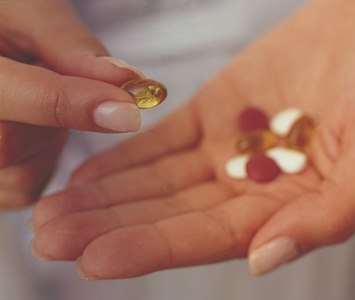
I’ve long known that multivitamins are especially protective for women with cardiovascular disease. Now, a new study published in The Journal of Nutrition is reinforcing my opinion.
For their study, researchers at the National Institutes of Health analyzed data from the National Health and Nutrition Examination Survey (NHANES) of 8,678 adults ages 40 and older. What they found is that women who take multivitamins for three or more years were at a significantly reduced risk of death from cardiovascular disease. The same association wasn’t found in men.
This study confirms the findings of the 2010 study of women in Sweden which found that women who took multivitamins for five years had a significantly reduced risk of myocardial infarction.
Why Are Multivitamins So Protective for Women?
One reason taking multivitamins is so important for women is that they need more antioxidant protection than men. This is especially important for women who have smoked or taken birth control pills, since both of these factors can deplete the body of vitamin C as well as B vitamins—raising homocysteine and causing oxidative stress on the blood vessels.
Another risk factor women tend to have is smaller blood vessels, which makes them more vulnerable to the consequences of higher blood pressure. Therefore, women get more diastolic dysfunction than men. So, it’s especially important for women to take a multivitamin that fortifies them with the nutrients they need to maintain normal blood pressure as well as support endothelial cell function—including magnesium, vitamin D, B vitamins, and especially nitric oxide enhancing nutrients like vitamin C and grape seed extract.
For some of these same reasons, women tend to have more side effects with bypass surgery and angioplasty. In fact, in my cardiology practice I saw so many women with heart related health issues that I started formulating my own multivitamin complex back in 1990.
What should women look for in a multivitamin? Women who are postmenopausal should never take iron! You should look for a multivitamin that contains a minimal amount of copper; less than the RDA. Plus, you want a multivitamin complex that’s high in vitamin D (1,000 IU) and lower in calcium (less than 500 mg). In addition, formulas with strong B-vitamin support, magnesium, vitamin C, and minerals are also vitally important. Plus, if you can find a formula with phytoestrogen support, that’s even better.
Now it’s your turn: Do you take a multivitamin?


